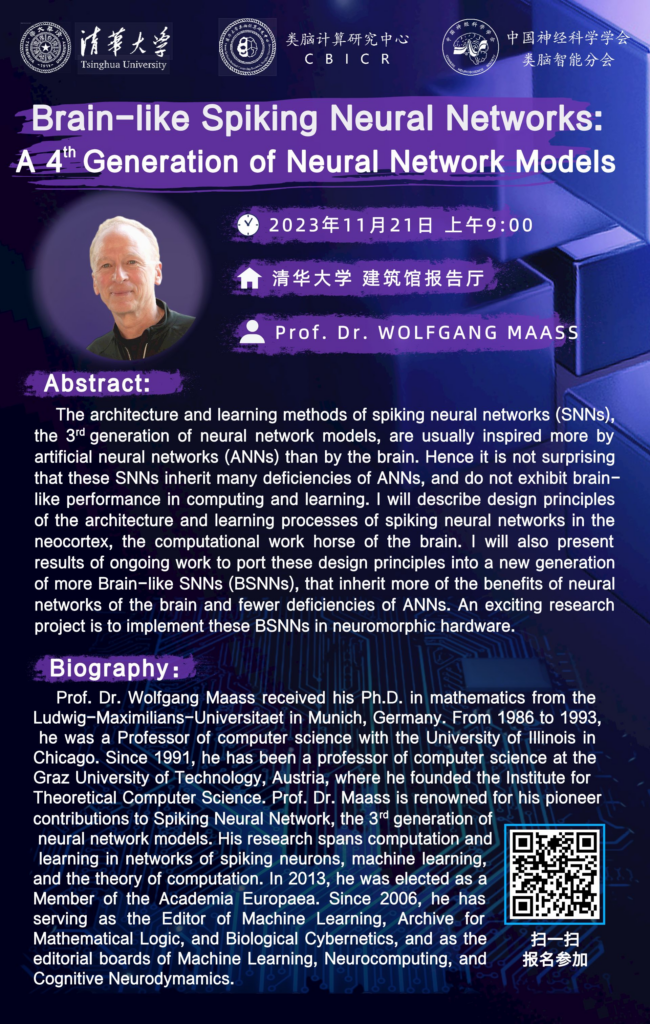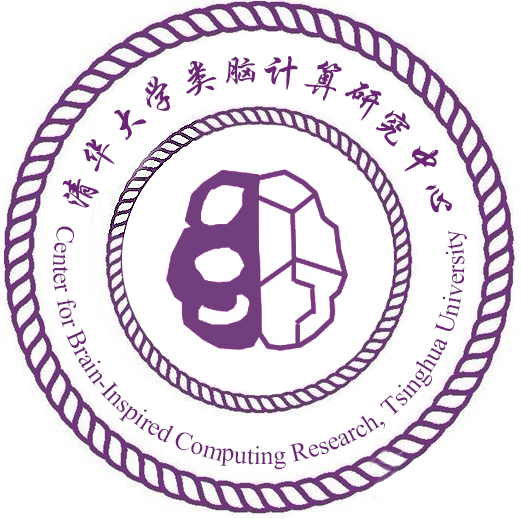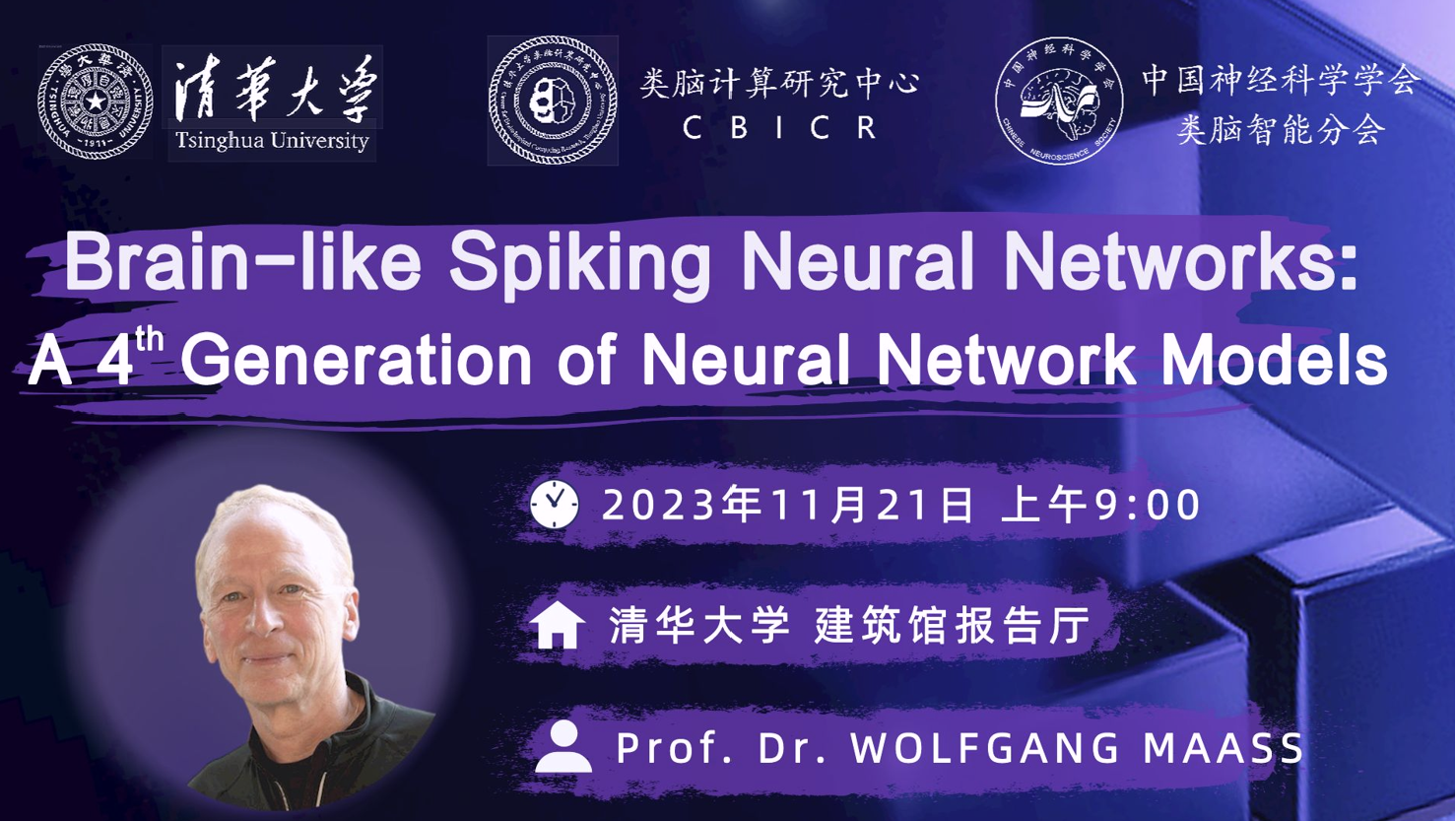Date:2023年11月21日9:00
Address:建筑馆报告厅
Speaker:Prof. Dr. Wolfgang Maass
Title:Brain-like spiking neural networks: A 4th generation of neural network models.
Abstract:
The architecture and learning methods of spiking neural networks (SNNs), the 3rd generation of neural network models, are usually inspired more by artificial neural networks (ANNs) than by the brain. Hence it is not surprising that these SNNs inherit many deficiencies of ANNs, and do not exhibit brain-like performance in computing and learning. I will describe design principles of the architecture and learning processes of spiking neural networks in the neocortex, the computational work horse of the brain. I will also present results of ongoing work to port these design principles into a new generation of more Brain-like SNNs (BSNNs), that inherit more of the benefits of neural networks of the brain and fewer deficiencies of ANNs. An exciting research project is to implement these BSNNs in neuromorphic hardware.
Biography:
Prof. Dr. Wolfgang Maass received his Ph.D. in mathematics from the Ludwig-Maximilians-Universitaet in Munich, Germany. From 1986 to 1993, he was a Professor of computer science with the University of Illinois in Chicago. Since 1991, he has been a professor of computer science at the Graz University of Technology, Austria, where he founded the Institute for Theoretical Computer Science. Prof. Dr. Maass is renowned for his pioneer contributions to Spiking Neural Network, the 3rd generation of neural network models. His research spans computation and learning in networks of spiking neurons, machine learning, and the theory of computation. In 2013, he was elected as a Member of the Academia Europaea. Since 2006, he has serving as the Editor of Machine Learning, Archive for Mathematical Logic, and Biological Cybernetics, and as the editorial boards of Machine Learning, Neurocomputing, and Cognitive Neurodymamics.



